Sorbitol Powder is a white, odorless, crystalline powder that is a sugar alcohol derived from natural sources, including fruits like apples, pears, and peaches, or synthetically from glucose. Sorbitol is widely recognized for its ability to serve as a low-calorie sugar substitute. Sorbitol Powder is primarily used as a sweetener in food and beverages, as well as in the pharmaceutical, cosmetic, and industrial sectors due to its unique properties. It is less sweet than table sugar but still provides a sweet taste while contributing fewer calories. In addition, it has humectant properties, which means it helps retain moisture in various formulations.
Applications:
1. Food and Beverage Industry:
- Sugar Substitute: Sorbitol Powder is commonly used as a low-calorie, sugar-free sweetener in the food and beverage industry. It is ideal for sugar-free candies, chocolates, gums, jams, and jellies, providing sweetness without raising blood sugar levels, making it popular in diabetic-friendly and low-calorie foods.
- Humectant in Baked Goods: In baked goods, Sorbitol Powder helps retain moisture, keeping cakes, cookies, and other products soft and fresh for longer periods.
- Thickening Agent: It is used as a thickening agent in syrups, sauces, and dressings, where it helps to improve the texture and stability of the product.
- Preservative in Foods: Due to its ability to retain moisture, Sorbitol Powder helps extend the shelf life of foods, particularly those that are prone to drying out or losing moisture.
2. Pharmaceutical Applications:
- Laxative: Sorbitol Powder is widely used in pharmaceutical formulations as an osmotic laxative. It works by drawing water into the intestines, which helps relieve constipation. It is commonly found in over-the-counter laxative products.
- Excipient in Tablet and Capsule Formulations: It serves as a filler, binder, and humectant in the manufacture of tablets and capsules. Sorbitol ensures that these products retain their stability and moisture during storage.
- Oral Care Products: Sorbitol Powder is used in the production of oral care products such as toothpaste and mouthwash to enhance texture, retain moisture, and improve the overall consistency of the product.
3. Cosmetics and Personal Care:
- Moisturizer: Sorbitol Powder acts as a humectant in moisturizers, lotions, and creams. It attracts moisture from the air and helps maintain skin hydration, preventing dryness.
- Skin Care Products: It is found in various skin care products like facial creams, serums, and body lotions to enhance the feel of the product and retain moisture on the skin.
- Hair Care: Sorbitol Powder is also included in shampoos and conditioners for its ability to provide hydration and improve the texture and manageability of hair.
- Cosmetic Formulations: It is commonly used in cosmetic products like deodorants, lip balms, and body washes to stabilize the formulation and keep the product from drying out.
4. Industrial Applications:
- Plasticizer in Polymers: Sorbitol Powder is used in the plastic industry as a plasticizer to improve the flexibility and softness of materials such as films, coatings, and plastics.
- Manufacturing of Surfactants: Sorbitol is used as a key ingredient in the production of surfactants, which are employed in a variety of cleaning products, detergents, and emulsifiers.
- De-icing Products: Sorbitol Powder is sometimes used in de-icing products, especially in areas where environmentally safe alternatives are needed. It is biodegradable and does not have the toxic effects associated with traditional salt-based de-icers.
5. Veterinary and Animal Care:
- Animal Feed: Sorbitol Powder can be used in animal feed as a sweetener or binder to improve palatability and texture. It is also used in the formulation of specific nutritional supplements for pets.
- Veterinary Laxatives: Sorbitol Powder is sometimes used in veterinary products as a mild laxative to alleviate constipation in animals.
Safety Guidelines:
- Personal Protective Equipment (PPE):
- Skin Protection: Sorbitol Powder is generally non-irritating to the skin, but prolonged contact in large quantities may cause minor irritation. Wearing gloves is recommended when handling the powder in bulk quantities.
- Eye Protection: In the case of accidental eye contact, rinse the eyes immediately with plenty of water. Wearing protective eyewear is advisable when working with large quantities or in industrial environments.
- Respiratory Protection: Sorbitol Powder is not typically a respiratory hazard. However, inhaling large amounts of dust may cause mild irritation. Inhalation of powder should be avoided by using proper dust control measures such as dust masks or respirators in industrial environments.
- Storage:
- Store Sorbitol Powder in a cool, dry place away from direct sunlight and heat. Ensure the container is tightly sealed to prevent moisture absorption, as sorbitol is hygroscopic (it attracts moisture).
- Keep the product in a well-ventilated area and ensure that it is protected from contamination.
- First Aid:
- Inhalation: If inhaled in large quantities, move the person to fresh air immediately. If symptoms persist, seek medical advice.
- Skin Contact: In case of skin irritation, wash the affected area with soap and water. Sorbitol is generally safe on skin, but prolonged contact should be avoided.
- Eye Contact: Rinse eyes immediately with plenty of water for at least 15 minutes. If irritation persists, seek medical attention.
- Ingestion: Sorbitol Powder is generally safe for consumption, but ingesting large amounts may cause mild gastrointestinal discomfort such as bloating or diarrhea. If significant amounts are ingested, seek medical advice.
- Disposal:
- Sorbitol Powder is biodegradable and can generally be disposed of down the drain in small quantities. However, disposal in larger quantities should follow local regulations for waste disposal to avoid environmental contamination.

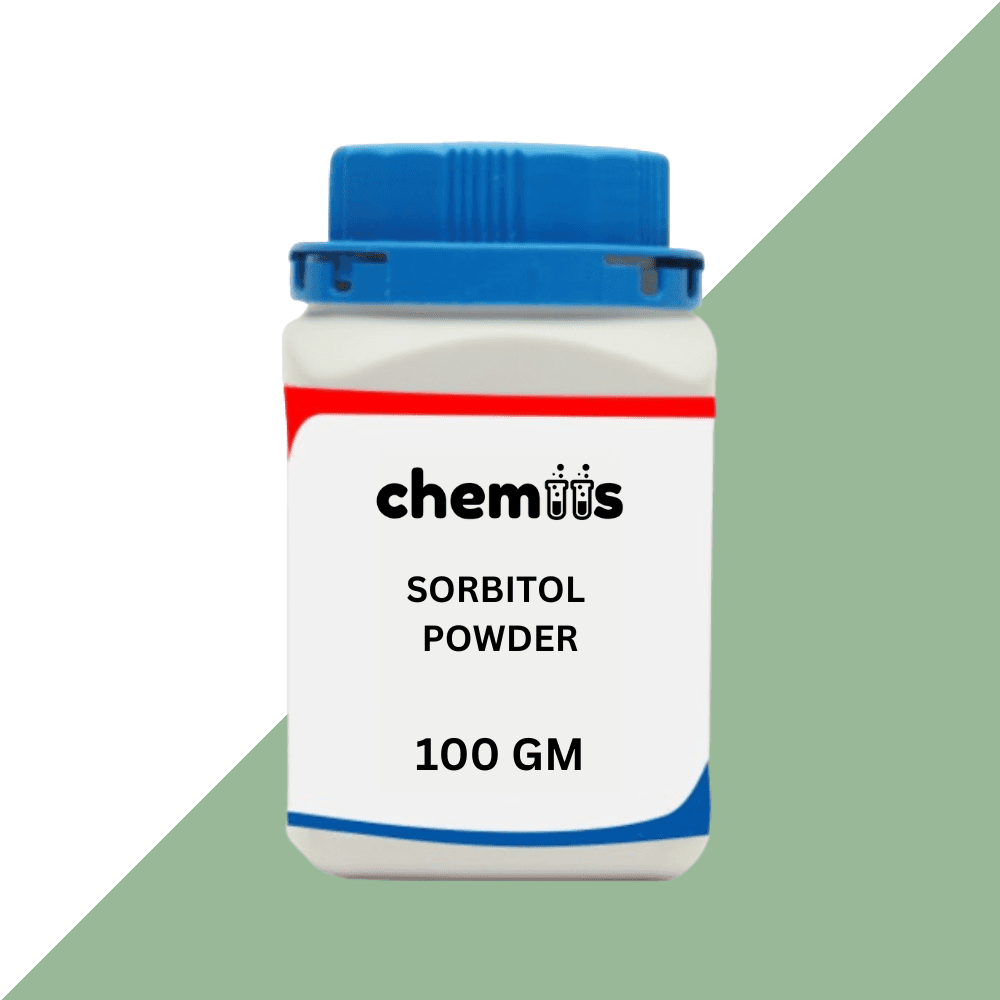
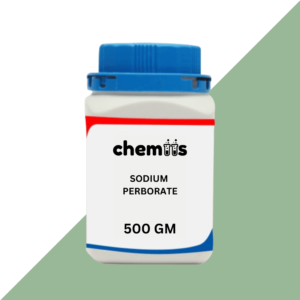
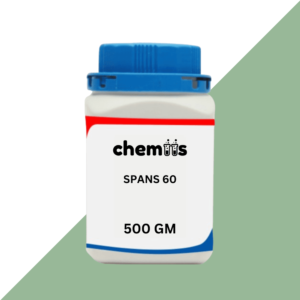
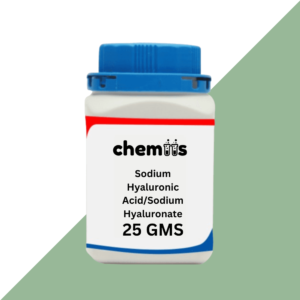

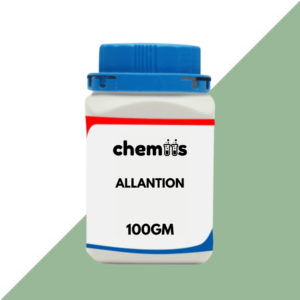

Prateek Saxena (verified owner) –
No complaints at all.
Kusum Kumari (verified owner) –
User-friendly website.
Bhavika Shah (verified owner) –
Quality exceeded expectations.
Kiran Kumar (verified owner) –
No leakage or damage.
Gaurav Pandey (verified owner) –
Smooth ordering process.
Pooja Sinha (verified owner) –
Exactly as shown.
Saumya Balan (verified owner) –
Excellent shipping speed.
Mohit Bansal (verified owner) –
Bulk order handled perfectly.
Harshit Reddy (verified owner) –
Good quality.
Harsh Vardhan (verified owner) –
Excellent service overall.